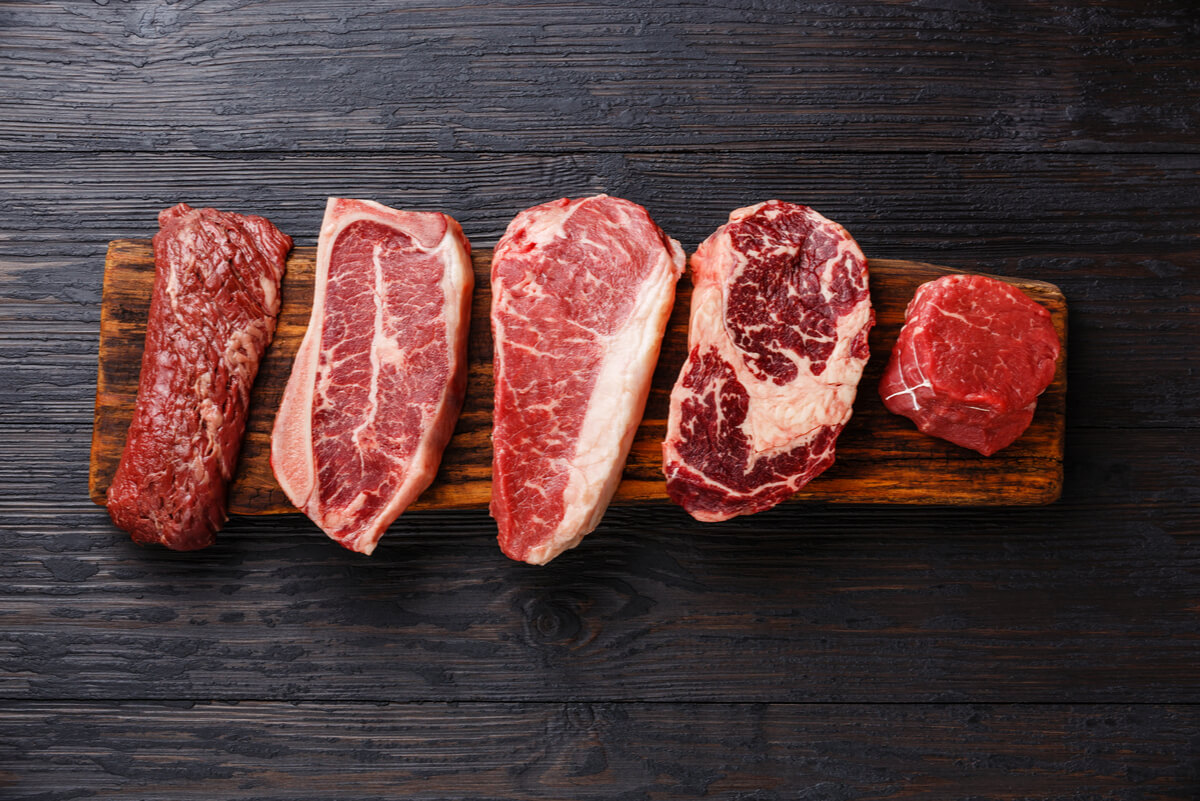Prevention of Anemia

Prevention of anemia due to folate, iron or vitamin B12 deficiency is possible. It requires certain improvements in the diet and some additional guidelines that are very simple to apply. As an added bonus, these guidelines will also help to improve your lifestyle.
Eating healthily is important, but when it comes to preventing or fighting a nutritional deficiency, you really do need to know how to do it correctly.
This is because people often mix food or use products that, even though they’re nutritious, delicious and appetizing, aren’t the best options when there’s a risk of developing anemia, or when it has already been detected in an initial phase.
Let’s take a closer look at the matter.
Healthy diet

The dietary guidelines emphasize three things: eat enough, eat in a balanced way, and eat smart. This means that we mustn’t only follow the impulse to satisfy our hunger, but we must also learn to give priority to everything that increases our health, both in the short and long term.
Some people eat enough, but they don’t do it in a balanced or nutritious way. Having a coffee with toast for breakfast or having a plate of chips with bacon for lunch certainly fills you up, but it isn’t the best plan for every day of the week, and certainly not for long periods of time.
At present, in addition to consulting the doctor about what you can do to prevent anemia, you can also turn to a nutritionist. Both professionals can offer accurate guidance on how to structure a proper eating plan, based on individual needs, health status, and, of course, lifestyle.
It’s also possible to use certain diets as a point of reference. In this sense, the Mediterranean diet is usually one of the most popular and well-known, as it figures in the top 10 healthiest diets in the world.
In 2009, a study explained the effects of a diet based around the Mediterranean model on the bioavailability of iron. They also analyzed the iron status in adolescents.
The researchers concluded that a diet based on Mediterranean models can improve the utilization of iron in the diet during adolescence and prevent iron deficiency.
A year later, a study was published in which a certain relationship between this diet and iron intake could be observed. This led the researchers to hypothesize about its possible contribution to the prevention of anemia and other health problems, and especially neurodegenerative diseases.
Common dietary guidelines

According to a document prepared by the World Health Organization, the prevention of anemia through diet should include the following:
- Increasing the consumption of foods rich in iron, mainly those of animal origin such as
meat (especially red meat), poultry, and fish. - Taking advantage of plant sources rich in iron, such as legumes, and vitamin A or carotenes.
- Regularly incorporating fruit and vegetables rich in citric or ascorbic acid (for example, citrus fruits) into the diet, to increase the absorption of non-heme iron.
- When preparing meals: germination, fermentation and soaking can improve iron absorption.
- Avoiding the consumption of coffee and tea with meals so that they don’t hinder the absorption of iron. And maintaining a low consumption of these drinks in general.
- Moderating the consumption of dairy products and avoiding them when taking sources of iron. For example, it isn’t advisable to consume cream of spinach soup (made from milk).
- Avoiding the consumption of junk and ultra-processed foods.
Final recommendations
Before making drastic changes to your diet, or taking a vitamin or other supplement to prevent anemia, it’s best to consult your doctor. The indiscriminate and unsupervised consumption of supplements can be counterproductive in many cases and it’s preferable not to take risks.
If you have improved your diet and notice fatigue, weakness, and other discomfort, it’s best to go to the specialist. They’ll give you a check-up to find out what may be happening and what could be the most appropriate treatment.
In short, the most common anemias can be prevented and resolved in a simple way if you follow the experts’ instructions and maintain consistent lifestyle habits.
Prevention of anemia due to folate, iron or vitamin B12 deficiency is possible. It requires certain improvements in the diet and some additional guidelines that are very simple to apply. As an added bonus, these guidelines will also help to improve your lifestyle.
Eating healthily is important, but when it comes to preventing or fighting a nutritional deficiency, you really do need to know how to do it correctly.
This is because people often mix food or use products that, even though they’re nutritious, delicious and appetizing, aren’t the best options when there’s a risk of developing anemia, or when it has already been detected in an initial phase.
Let’s take a closer look at the matter.
Healthy diet

The dietary guidelines emphasize three things: eat enough, eat in a balanced way, and eat smart. This means that we mustn’t only follow the impulse to satisfy our hunger, but we must also learn to give priority to everything that increases our health, both in the short and long term.
Some people eat enough, but they don’t do it in a balanced or nutritious way. Having a coffee with toast for breakfast or having a plate of chips with bacon for lunch certainly fills you up, but it isn’t the best plan for every day of the week, and certainly not for long periods of time.
At present, in addition to consulting the doctor about what you can do to prevent anemia, you can also turn to a nutritionist. Both professionals can offer accurate guidance on how to structure a proper eating plan, based on individual needs, health status, and, of course, lifestyle.
It’s also possible to use certain diets as a point of reference. In this sense, the Mediterranean diet is usually one of the most popular and well-known, as it figures in the top 10 healthiest diets in the world.
In 2009, a study explained the effects of a diet based around the Mediterranean model on the bioavailability of iron. They also analyzed the iron status in adolescents.
The researchers concluded that a diet based on Mediterranean models can improve the utilization of iron in the diet during adolescence and prevent iron deficiency.
A year later, a study was published in which a certain relationship between this diet and iron intake could be observed. This led the researchers to hypothesize about its possible contribution to the prevention of anemia and other health problems, and especially neurodegenerative diseases.
Common dietary guidelines

According to a document prepared by the World Health Organization, the prevention of anemia through diet should include the following:
- Increasing the consumption of foods rich in iron, mainly those of animal origin such as
meat (especially red meat), poultry, and fish. - Taking advantage of plant sources rich in iron, such as legumes, and vitamin A or carotenes.
- Regularly incorporating fruit and vegetables rich in citric or ascorbic acid (for example, citrus fruits) into the diet, to increase the absorption of non-heme iron.
- When preparing meals: germination, fermentation and soaking can improve iron absorption.
- Avoiding the consumption of coffee and tea with meals so that they don’t hinder the absorption of iron. And maintaining a low consumption of these drinks in general.
- Moderating the consumption of dairy products and avoiding them when taking sources of iron. For example, it isn’t advisable to consume cream of spinach soup (made from milk).
- Avoiding the consumption of junk and ultra-processed foods.
Final recommendations
Before making drastic changes to your diet, or taking a vitamin or other supplement to prevent anemia, it’s best to consult your doctor. The indiscriminate and unsupervised consumption of supplements can be counterproductive in many cases and it’s preferable not to take risks.
If you have improved your diet and notice fatigue, weakness, and other discomfort, it’s best to go to the specialist. They’ll give you a check-up to find out what may be happening and what could be the most appropriate treatment.
In short, the most common anemias can be prevented and resolved in a simple way if you follow the experts’ instructions and maintain consistent lifestyle habits.
-
“Anemia Por Falta de Hierro – Trastornos de La Sangre – Manual MSD Versión Para Público General.” n.d. Accessed May 27, 2021. https://www.msdmanuals.com/es/hogar/trastornos-de-la-sangre/anemia/anemia-por-falta-de-hierro.
-
“Anemia Por Deficiencia de Folato: MedlinePlus Enciclopedia Médica.” n.d. Accessed May 27, 2021. https://medlineplus.gov/spanish/ency/article/000551.htm.
- Dwyer BE, Zacharski LR, Balestra DJ, et al. Potential Role of Iron in a Mediterranean-style Diet. Arch Neurol. 2010;67(10):1286–1288. doi:10.1001/archneurol.2010.245
- Mesías M, Seiquer I, Muñoz-Hoyos A, Galdó G, Navarro MP. The beneficial effect of Mediterranean dietary patterns on dietary iron utilization in male adolescents aged 11-14 years. Int J Food Sci Nutr. 2009;60 Suppl 7:355-68. doi: 10.1080/09637480903170641. PMID: 19763992.
- Nutritional anaemias: tools for effective prevention and control. Geneva: World Health Organization; 2017. Licence: CC BY-NC-SA 3.0 IGO.
Este texto se ofrece únicamente con propósitos informativos y no reemplaza la consulta con un profesional. Ante dudas, consulta a tu especialista.







